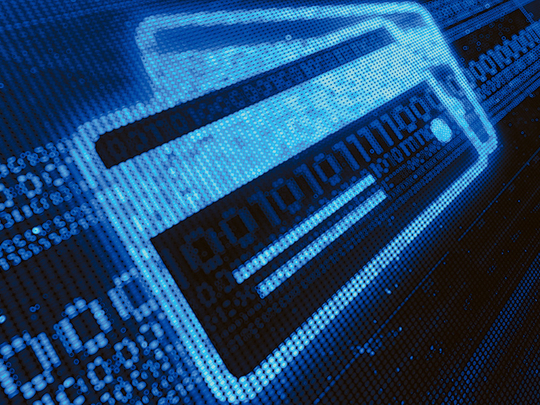
Those of us who grew up in the early years of the second half of the 20th century — the 1960s and 1970s — will empathise with this scenario, especially if we are from one of the developing nations such as India: we worked, travelled, shopped and lived in constant fear of our cash being lost or stolen.
Even so, our parents shied away from any kind of credit or debit cards. At that stage, in certain cultures, there was almost a social stigma with these products. Less than half a century later, that mindset has taken a U-turn.
The UAE has more than five million credit-card users, which is the second-highest per capita rate of credit-card usage in the GCC at 89 per cent. The upside of this is that e-payments allow us to track our expenses, plan budgets, identify spending trends as well as effectively deploy finances. The same holds true for businesses that use digital payment systems.
Despite this, a lot of people continue to be not only cash-dependent but also unbanked. For a cash-dependent individual, company or economic system, uncertainty and fear become defining states of existence if, depending on the relative strength of a currency, large amounts are always needed at hand to acquire even the smallest of necessities.
A 2013 study by the Fletcher School of Tufts University showed that even in the US, the world’s biggest economy, retail businesses — primarily mom-and-pop stores — lose about $40 billion (Dh147 billion) annually through cash theft. Other downsides to handling paper money include the cost of securing, insuring, transporting and producing it. There’s also the opportunity cost of cash lying under a mattress not earning anything.
Currency issuers face their own costs. For instance, India’s Reserve Bank and its financial institutions bear more than $3.5 billion in costs each year related to currency operations. The Bundesbank of Germany spends up to €10 billion (about Dh42 billion), and the US Treasury shells out more than $100 billion in similar costs. A cash-driven economy also results in under-reporting of taxes, creating a grey or black market economy where there are no trails to track.
High cost of cash
The Fletcher study estimates that as much as 5 per cent of a country’s GDP is tied up in the cost of cash. In last year’s figures, this translates to $105 billion for India and $900 billion for the US. For a cash-intensive economy such as the UAE’s, the cost of handling paper money could be in the region of $22 billion.
A digital economy goes beyond reducing the cost of maintaining an analogue and antiquated cash economy. It brings a host of economic advantages, from driving consumption to creating jobs and enhancing transparency.
A Moody’s Analytics study for Visa estimates that higher card usage contributed an additional $296 billion globally to consumption between 2011 and 2015, or a 0.1 per cent cumulative increase in global GDP during the period. That is an addition of about $74 billion to GDP each year. Countries with the largest increases in card usage saw the biggest contributions to growth, among the top five being Hungary (0.25 per cent), the UAE (0.23 per cent) and Chile (0.23 per cent).
Going digital
Electronic payments also give SMEs and corporates trackable and actionable data to make decisions on business growth. They also give governments data to base policies on taxation and financial inclusion initiatives.
With value-added tax scheduled for roll-out on January 1, 2018, increased usage of e-payments would bring a much-needed level of tracking and transparency to the financial system, while greatly reducing the size of the grey or black market in cash. This helps government recover higher levels of tax revenue, which can be used for socio-economic initiatives.
The next time you use your credit card online, feel satisfaction in the knowledge that you are doing your bit to expand the world’s economy.












